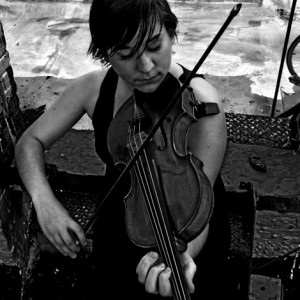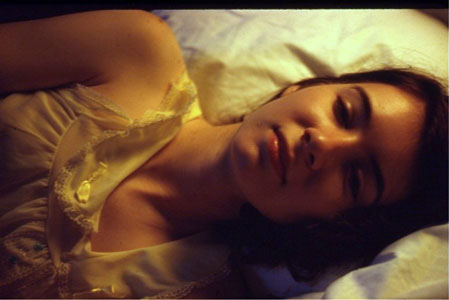“I always describe the viola as something that is kind of the wrong size for its body. It sounds like a man singing very high or a woman singing very low. And there’s something about that in-between-ness that is very attractive to me and the challenge of overcoming the fact that, physics-wise, it’s actually proportioned incorrectly, in other words, for a viola to be the right size for the length of its strings to play very easily, it would be something like the size of a small cello…There’s something about reaching in and having to get around that imperfection that really appeals to me, honestly.” (more…)

Spectrum Concerts Berlin visits New York
Last week, I met with cellist Frank Dodge at Lincoln Center to discuss the upcoming concert his ensemble Spectrum Concerts Berlin is giving in New York.
At 8 PM on December 7th at Weill Recital Hall, Dodge and his colleagues, in collaboration with the Abby Whiteside Foundation, will present a program that celebrates the works of composer/pianist Robert Helps (1928-2001).
Helps was a virtuoso performer adept at both contemporary repertoire and warhorses from the classical music canon. He also relished championing works that had been overlooked and crafting (often fiendishly challenging) transcriptions for the piano. More than once, I heard Milton Babbitt suggest that Helps “made the unplayable playable.”
Born in the United States, Dodge relocated to Berlin in the 1980s. But he didn’t forget about his first encounters with Helps: in the late 1960s in Boston as a student at the New England Conservatory of Music.
He says, “Bob (Helps) liked to champion pieces that needed looking after. His performances of the music of John Ireland, Felix Mendelssohn, and Poulenc and, of course, his own music were truly very special to hear. We were fortunate to have him visit and perform with us in Berlin twice. I only wish that, before his passing in 2001, we could have collaborated more frequently.”

Dodge’s stewardship has cultivated a group of champions of underrepresented repertoire. Spectrum Concerts Berlin is currently giving its twenty-fourth season of concerts. They have recently released their second recording devoted to Helps’ music: Robert Helps in Berlin (also featuring the ATOS Trio and Helps; Naxos 8.559696-97). A double CD set, it features a number of Helps’s important chamber works, including one of his first mature pieces, the 1957 Piano Trio, as well as one of his last, Piano Trio No. 2, written shortly before his passing. It’s interesting to note his return to the genre after forty years’ absence. My initial impression of the piece is one of leave-taking. I hear its angular lines, brittle articulation, and acerbic harmonies as a defiant kind of valedictory statement. Dodge, on the hand hears the trio showing evidence of new potential directions in Helps’s music; alas, unrealized.
He says, “The second Piano Trio and some of the other late pieces, such as Shall We Dance (1994) and the Piano Quartet and Quintet (both 1997), provide glimpses of Bob considering his compositional approach afresh. I find the discoveries he makes in these works to provide some of his most exciting music.”
The CD also includes a live recording of Helps at the piano; performing a recital that includes some of his aforementioned favorites: Mendelssohn, Ireland, Poulenc, Shall We Dance, and Godowsky’s Studies on Chopin’s Etudes (or, as one of my professors used to like to call them, Chopin on steroids!). One is struck by his exquisite touch and seemingly effortless virtuosity of Helps’ playing.
The impressive array of compositions and music-making displayed on the Naxos disc raises a question. Why isn’t Helps a household name here? Why don’t American-based ensembles perform more Helps and why don’t more composers know him as an important figure?
When I pose this question to Dodge, he says, “Bob did zero self-promotion: none. Even though he taught all over and was very well respected, he had a difficult time with the conventional ‘career building’ activities that many musicians take for granted as part of the business. And he also had considerable personal struggles during his lifetime, with illnesses and other challenges. There were long periods of silence, where he didn’t play or compose at all. Fortunately, these gave way to great bursts of creativity.”
“So, Helps isn’t a household name … yet! Things will change. Sometimes, when a figure is hyped during his or her lifetime, but their work is nothing special, they fade away rather quickly. With Helps, the opposite can be true. It is durable work, and its legacy will only grow. The strength of his music is what will bring performers and listeners to it over time.”
My take: if you’re in the New York area, don’t miss out on this chance to hear Spectrum Concerts Berlin on 12/7. They will make you a convert to Helps’s music in nothing flat.
Ticket Giveaway
In a very generous gesture, the ensemble is offering 20 FREE tickets to S21 readers. If you’re interested in attending the show, email Paula Mlyn at: paula@a440arts.com with your name. She will put aside a ticket for you for the December 7 performance.
S21’s intrepid reporter-in-the-field (oh yeah, and superstar violinist, too!) Hilary Hahn just happened to virtually bump into the dean of (very young) American composers, Nico Muhly. …Well, maybe there was a little advanced planning, but let’s keep this casual, shall we? Here they muck-de-muck for a friendly quarter-hour, about the musical life and the pieces Nico’s composed for Hilary.
[youtube]http://www.youtube.com/watch?v=1IBk_U6b2Hw[/youtube]
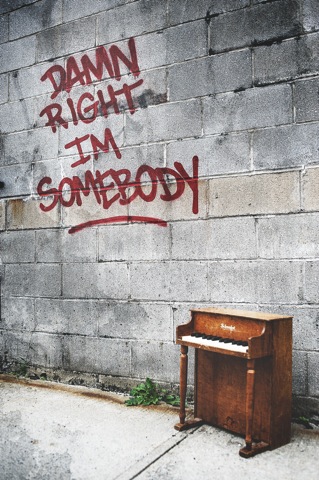
Think the emphasis should be placed on the first word of toy piano? If so, you’re behind the times! The repertoire and the number of toy piano performers are both steadily growing. And manufacturers like Schoenhut are custom designing and upgrading their toy pianos to make them viable for a plethora of special effects (check out David Smooke’s recent blog post over at NMB to learn more about various extended techniques the instrument is capable of enduring).
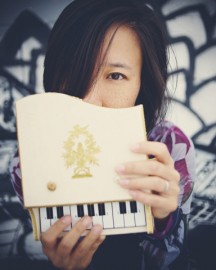
A commissioning project organized by Phyllis Chen and run since 2007, the Uncaged Toy Piano composition competition has worked on expanding the repertoire for toy piano. On November 29, December 1, and December 3, listeners will get to hear the fruits of the contestants’ labors. The Uncaged Toy Piano Festival showcases new pieces and several imaginative approaches to the baby grand’s spunky smaller cousin. In addition to Chen (and Smooke), the festival will feature toy piano diva Margaret Leng Tan, toy instrumentalist Angelica Negron, improvisor Miguel Frasconi, avant-folkies Cuddle Magic, and Rusty Banks’ Babbling Tower-to-Tower for toy piano and cell phones(!).
Uncaged Toy Piano Festival
November 29th, 7:30pm: Playhouse at Dixon
Dixon Place Lounge
161A Chrystie Street, New York City (Lower East Side)
December 1st, 8pm: Gershwin Hotel
7 East 27th Street, New York City (between 5th and Madison)
December 3rd, 8pm: Toy Bonanza
37 Arts The DiMenna Center
450 37th Street, New York, NY
On the File Under ? blog tomorrow, we’ll be discussing Landscapes, Toshio Hosokawa’s first portrait CD for the ECM imprint. The new recording features an orchestral arrangement of this 1993 work, originally scored for shô and string quartet.
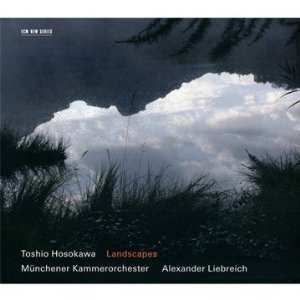
I certainly wouldn’t want to be compelled to prefer one to the other: Landscape V is a haunting tone poem in both its intimate and fuller incarnations.

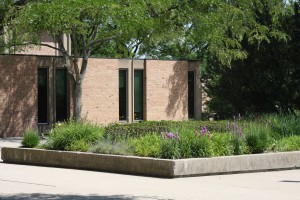 Early this week I posted my report on the 2011 Midwest Composers Symposium, wherein I mentioned the fact I had heard a lot of students’ music in a short amount of time. Well, the 30+ works I wrote about Thursday were just the beginning of my new music marathon because Midwest was immediately followed by last Monday’s student composers’ concert at the University of Michigan. That composers’ forum, the year’s second, was refreshingly brief in contrast to the preceding weekend’s protracted program, yet it contained delicious variety and a few personal debuts by composers I was not familiar with.
Early this week I posted my report on the 2011 Midwest Composers Symposium, wherein I mentioned the fact I had heard a lot of students’ music in a short amount of time. Well, the 30+ works I wrote about Thursday were just the beginning of my new music marathon because Midwest was immediately followed by last Monday’s student composers’ concert at the University of Michigan. That composers’ forum, the year’s second, was refreshingly brief in contrast to the preceding weekend’s protracted program, yet it contained delicious variety and a few personal debuts by composers I was not familiar with.
Monday’s concert began with an electro-acoustic work by Robert Alexander, an accomplished, technologically oriented composer/sound artist who I saw perform with the MiND Ensemble last Spring. Mr. Alexander’s piece, a line between two spaces (turning and turning and resting), featured composer David Biedenbender at the piano and a host of live electronic devices. As I gathered, the work was mainly improvised, though it seemed like the overall structure – mostly in terms of energy level – had been agreed on beforehand. Most remarkable about the piece is the way in which Mr. Alexander’s electronics interacted with the piano. At first, the piano’s sound is undistorted, with the first synthesized sounds regurgitating the piano’s music and then shifting the pitch ever so slightly. However, the electronics increasingly gain power over the piano, achieving a beautiful and stunning summit whereby the electronic part actually subsumes the acoustic space of the piano, and the instrument is no longer audible.
The next two pieces were beautiful songs performed by composers David Wolff (tenor) and Michael Schachter (pianist). First came Mr. Wolff’s “Of Mere Being”, an impressionistic setting of Wallace Stevens. With its impulsive musical moods, “Of Mere Being” reflects the text impeccably and expressively without being obvious. Moreover, Mr, Wolff’s performance, for both songs, was fantastic and demonstrative of his impressive musicianship. Mr. Schachter’s Pierrot (Heart), followed and didn’t shy away from the mantle of excellent vocal writing introduced carried by “Of Mere Being”. Pierrot sets a poem by Langston Hughes, and opens simply to establish a somber, contemplative space from which the narrator will tell his story. Like “Of Mere Being”, Pierrot merges the piano and singer into a single dramatic force that illustrates the text without being to transparent. Particularly important to the drama in Mr. Schachter’s work is the aforementioned simplicity of the opening material. This idea’s expressivity grows slowly, only to explode rather gloriously in the song’s captivating climax.
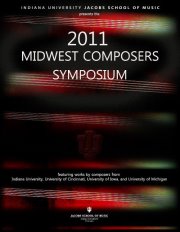 The positive aspect of having too much of a good thing is that you’ve consumed something good. For me in the last week, the object of my over-consumption has been new works by student composers, not only created by colleagues of mine at the University of Michigan, but the representatives of the University of Iowa, Indiana University and the University of Cincinnati who attended the 2011 Midwest Composers Symposium. Topping off the weekend-long buffet of freshly baked music was Monday evening’s second student composers’ concert of the year here at Michigan (which I will cover in the next installment in this pair of reviews). Suffice it to say, I heard a lot of music in those four days, so I will do my best to cover what passed by my ears.
The positive aspect of having too much of a good thing is that you’ve consumed something good. For me in the last week, the object of my over-consumption has been new works by student composers, not only created by colleagues of mine at the University of Michigan, but the representatives of the University of Iowa, Indiana University and the University of Cincinnati who attended the 2011 Midwest Composers Symposium. Topping off the weekend-long buffet of freshly baked music was Monday evening’s second student composers’ concert of the year here at Michigan (which I will cover in the next installment in this pair of reviews). Suffice it to say, I heard a lot of music in those four days, so I will do my best to cover what passed by my ears.
Midwest (as the event will be dubbed from now on) is an annually occurring conference of student composers held at one of the four member institutions (UM, UI, IU and CCM) on a rotating basis. For more background information check out last year’s post on the symposium. I participated in the Michigan delegation this year and traveled to Bloomington, Indiana (IU was the host this time ’round) with my work for two marimbas “Dark Spiral” (here’s a video). There were four concerts altogether, one Friday evening and three on Saturday offering over 30 individual works to an audience of composers, performers and professors. Intervening between the morning and afternoon concert Saturday was a very thought-provoking discussion session wherein each school elected students to give a brief presentation on a musical topic of their choice. I really enjoyed the interactions spawned by this feature of the event and I hope it is retained and, perhaps, expanded in the future.
I apologize in advance to all those performers and composers I am unable to devote much time to in the forthcoming paragraphs. The extreme volume of music presented to me forces me – understandably I hope – to be uncomfortably brief. Before getting specific I want to emphasize that every school represented themselves extremely well, in my opinion. Each offered a variety of styles and ensembles making the slate of proffered works as diverse as it was ample.
Now to the music.
Friday’s concert featured the “large ensemble” works, including performances by the Indiana University Chamber Orchestra, Contemporary Vocal Ensemble and New Music Ensemble. There were many remarkably beautiful moments in the first two works, Natalie Williams‘ Les Chant du Malador (2011) and Stas Omelchenko‘s Musings… (2011), particularly the third movement of Ms. Williams’ piece, which alludes to tonality in a very refracted way that is convincing and engaging without being too on-the-nose. These chamber orchestra works were followed by two very well-received (at least with my crew) choral pieces: Lindsey Jacob‘s Continue to Exist (2006) and Ji Young Kim‘s Reflections on Waiting for Mama (2011). Ms. Kim’s work is particularly striking in how it uses onomatopoeia to imitate the native language of her text’s subject, Korean. The piece balances the choir’s texture wonderfully, using precisely located solos to convey and magnify the work’s narrative backbone. The final two works on the evening’s program were Paul Dooley‘s Point Blank (which I already reviewed) and Justin Grossman‘s At Last the Secret is Out (2010), pairing very nicely together to conclude the first evening and set the bar very high for Saturday’s music.
For those of you in the area, the highly-lauded chamber ensemble Brave New Works is returning to their old stomping grounds in Ann Arbor for two performances this weekend.
The first is at Ann Arbor’s beloved Kerrytown Concert House on Friday November 18, at 8 PM. The program will feature works by Joseph Schwantner, Chen Yi and UM’s own Evan Chambers and Bright Sheng. Tickets are $5 for students, $10-25 general admission
The second concert is the following evening (Nov. 19) at 8 PM in the McIntosh theater at the UM School of Music, and features an all-Michigan program of Erik Santos, Michael Daugherty, Kristin Kuster and Paul Schoenfield. This concert is free.
[youtube]http://www.youtube.com/watch?v=0OX_4cJyhgI[/youtube]
